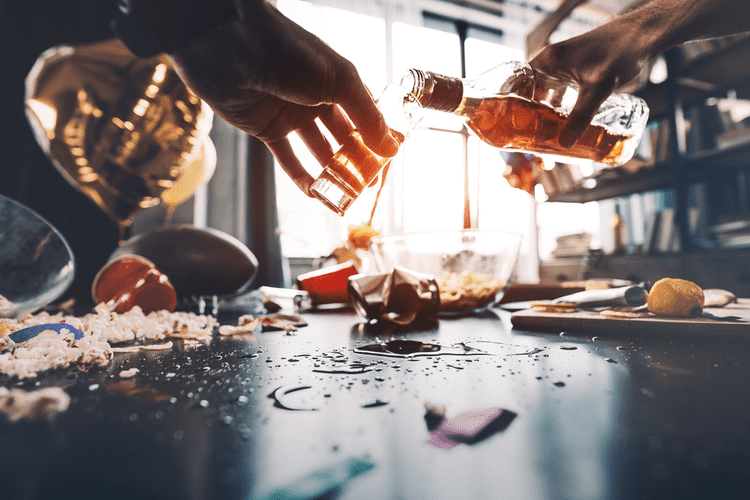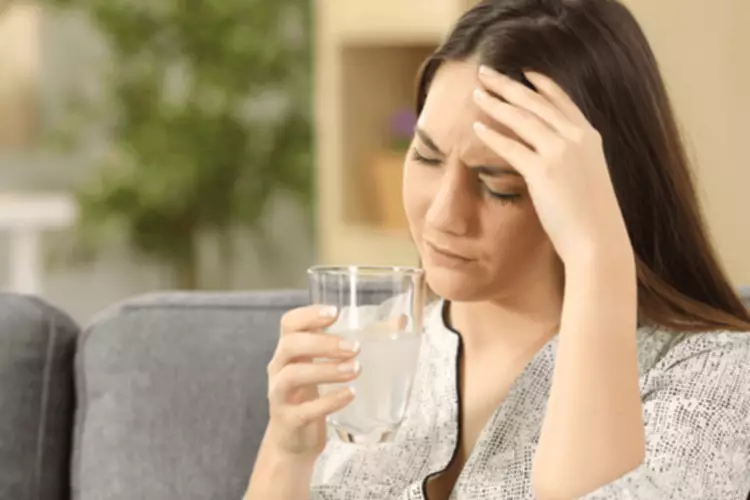Many therapists offer parent-adolescent relationship counseling if you’re unsure how you’re with your teen about drugs. Recent research shows that medication for opioid use disorder significantly improves the outcome for people with opioid use disorder. The medications work by reducing withdrawal symptoms to prevent continued use. If your teen shows signs of depression, 2017 research shows that parental monitoring may reduce substance use. If your teen is using substances, it’s a good idea to intervene rather than assuming it’s a phase they will outgrow.
Tween and teen health
Teenagers in Idaho are 7.98% less likely to have used drugs in the last month than the average American teen. Teenagers in Hawaii are 11.64% less likely to have used drugs in the last month than the average American teen. Teenagers in Georgia are 19.01% less likely to have used drugs in the last month than the average American teen. Teenagers in Florida are 5.50% less likely to have used drugs in the last month than the average American teen.
Teenage Drug Addiction: An Overview
The study found that fentanyl-related deaths increased from 253 in 2019 to 680 the following year. If your teen denies using drugs and you think they are lying, communicate the negative consequences of drug and alcohol use. Be clear that you want them to be safe and that experimenting with substances is dangerous—even if it’s just one time. If you are not able to keep the line of communication open with your teen, talk to their healthcare provider. They can help connect you to resources and support you in taking more decisive action, like drug testing. The intervention can be customized to the needs of a given community (in one trial, drag racing outstripped substance use as the most problematic thrill-seeking behavior).
What Are the Signs a Teen Is Using Drugs?
- This video for middle school students explains how the brain develops and how drugs affect the brain.
- Youth opioid use is linked to risky behaviors like not using a condom and that can lead to HIV, STDs, and unintended pregnancy.
- Many therapists offer parent-adolescent relationship counseling if you’re unsure how you’re with your teen about drugs.
- In addition, teens often don’t know or understand the dangers of substance abuse.
And if they are lonely or dealing with stress, teens may use substances to distract from these feelings. If those friends are older, teens can find themselves in situations that are riskier than they’re used to. For example, they may not have adults present or younger teens may be relying on peers for transportation. Teens may be more likely to try substances for the first time when hanging out in a social setting.
Despite these tragic numbers, no national study had previously estimated the number of children who lost a parent among these deaths. NSDUH defines a parent as biological parent, adoptive parent, stepparent, or adult guardian. An estimated 321,566 children in the United States lost a parent to drug overdose from 2011 to 2021, according to a study published in JAMA Psychiatry. The rate of children who experienced this loss more than doubled during this period, from approximately 27 to 63 children per 100,000. The highest number of affected children were those with non-Hispanic white parents, but communities of color and tribal communities were disproportionately affected. The study was a collaborative effort led by researchers at the National Institutes of Health’s (NIH) National Institute on Drug Abuse (NIDA), the Substance Abuse and Mental Health Services Administration (SAMHSA), and the Centers for Disease Control and Prevention (CDC).
Remember, drugs change the brain—and this can lead to addiction and other serious problems. So, preventing early use of drugs or alcohol may go a long way in reducing these risks. Many teens experimenting with illicit drugs and alcohol will turn out fine and live 5 keys to going alcohol-free healthy lives. However, others will go on to develop long-term addictions and other serious health issues. Experimenting with drugs or alcohol is tempting for teenagers because they may not know or understand the dangers of using substances—even just once.
Therefore, students with less engagement in school — a known risk factor for drug use – may have been less likely to participate in the survey. This data visualization illustrates heavy alcohol use and binge drinking statistics amongst college-age youth to inform colleges and communities. Vakharia and her colleagues have developed a school curriculum called Safety First, which teaches youth about the risks of drug use and how to identify signs of an overdose and how to address it.
It’s also important to note that, in 2017, among adolescents aged who used marijuana, 22% were depressed. A psychiatric disorder, particularly depression, also may increase the risk of marijuana abuse. According to SAMHSA, some adolescents (5%) had marijuana use disorder in 2022, which differences between crack and cocaine and myths means they experienced adverse consequences of their drug use and yet couldn’t give the drug up. Overall, nearly 4% of kids said they’d used alcohol or drugs in the past month, and there was no evidence that parents’ monitoring had increased the teens’ likelihood of getting caught.
The Seven Challenges Program, for example, uses supportive journaling exercises, combined with counseling, to help young people practice informed decision-making around substance use with those processes in mind. Psychologists have been a key part of the effort to create, test, and administer developmentally appropriate, evidence-based programs that approach prevention in a holistic, nonstigmatizing way. Partially because of the lessons learned from D.A.R.E., many communities are taking a different approach to addressing youth substance use. Education and honest communication go a long way in helping teenagers learn about the risks of drugs and alcohol.
Teenagers in Mississippi are 21.23% less likely to have used drugs in the last month than the average American teen. Teenagers in Minnesota are 2.14% less likely to have used drugs in the last month than the average American teen. Teenagers in Michigan are 6.95% more likely to have used drugs in the last month than the average American teen. Teenagers in Massachusetts are 33.37% more likely to have used drugs in the last month than the average American teen. Teenagers in Maryland are 1.71% less likely to have used drugs in the last month than the average American teen. Teenagers in Maine are 47.44% more likely to have used drugs in the last month than the average American teen.
Previous studies have found that teens are less likely to use drugs, alcohol or tobacco if they have parents who remain aware of their activities, know their friends, and know their whereabouts when they aren’t home, researchers said. Even as the nation has expanded the use of harm-reduction strategies and availability of the overdose-reversal medication naloxone, the study noted there has been a lack of focus on parents. While studies have shown that such a focus might be useful, researchers said interventions such as peer-to-peer parenting training often aren’t included in drug treatment. The nation’s overdose deaths spiked last decade due to fatal episodes with opioids, then heroin. In recent years, overdose deaths have accelerated further with the widespread availability of cheap, illicit fentanyl, which is often combined with other substances.
While drug use can lead to mental health disorders, sometimes it’s the other way around. Alcohol is the most commonly abused substance among teens, but rates of nicotine and prescription medication abuse are increasing. Examples of prescription drugs teens may misuse include stimulants like Adderall and benzodiazepines like Xanax. Help prevent pregabalin wikipedia by talking to your teen about the consequences of using drugs and the importance of making healthy choices. Modern prevention programs also acknowledge that young people use substances to serve a purpose—typically either social or emotional in nature—and if adults expect them not to use, they should help teens learn to fulfill those needs in a different way, Weiner said.
Research has shown that the best treatment for teens is one that involves therapy with the entire family, as well as cognitive behavioral therapy (CBT) or a combination of therapeutic methods. It can be very hard and even scary to notice signs of a substance use disorder in your child — and it can be even harder for your teen. If your teen has developed a substance use disorder, you may notice that they eat or sleep too much or too little.
Frequency of use was another risk factor for psychosis, such as weekly or daily use, with those using the drug daily at elevated risk for serious psychiatric problems such as psychosis. In addition, individuals who use other addictive substances in addition to marijuana, such as tobacco, alcohol, and illegal drugs, have a greater risk for psychosis, as well as a worse outcome, such as more frequent treatment relapses or worse cognitive symptoms. Adolescents aged used various means to ingest marijuana in 2022; the most popular was smoking (77%), followed by vaping (60%). Also popular was eating or drinking the drug (36%) or using dabbing waxes and concentrates (23%). Some adolescent users applied marijuana in a lotion, cream, or skin patch or used drops, lozenges, strips, and other means of administration.


